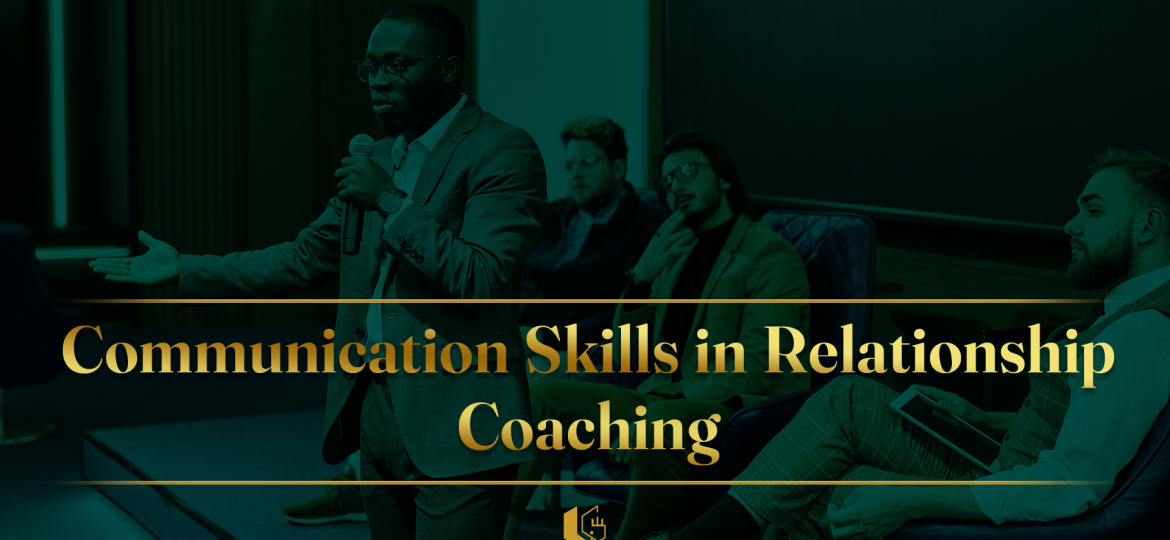
Introduction
Communication is the foundation of all human relationships. Whether within families, at work, or in social settings, strong communication skills can make a significant difference in the quality of our interactions. Yet, many people struggle to communicate effectively. Why do some conversations lead to misunderstandings, tension, or even broken connections?
Relationship coaching offers an effective approach to improving communication by helping individuals not only express themselves clearly but also understand the emotions, needs, and concerns of others. In this article, we’ll explore the key communication skills taught in relationship coaching and practical strategies for enhancing interpersonal interactions.
What Is Effective Communication and Why Is It Important?
Effective communication involves the exchange of messages, thoughts, and emotions in a way that both the sender and receiver fully understand. However, many conversations break down due to a lack of clarity, empathy, or listening skills. In relationship coaching, the goal is to help individuals improve their communication style and elevate the quality of their relationships.
Research shows that people with strong communication skills:
✔️ Have healthier and more stable emotional relationships
✔️ Succeed more in professional environments
✔️ Handle conflict and problem-solving more effectively
✔️ Exhibit greater confidence in social interactions
Key Communication Skills in Relationship Coaching
1. Active Listening
One of the most fundamental skills taught in relationship coaching is active listening. Many people focus on what they want to say next rather than truly hearing the other person. Active listening involves:
🔹 Paying full attention to the speaker (without distractions)
🔹 Showing interest through body language (e.g., nodding, maintaining eye contact)
🔹 Reflecting or summarizing key points to confirm understanding
👂 Practical Exercise:
Next time you have a conversation, try listening for at least 30 seconds without interrupting. Then, repeat a summary of what you heard to ensure clarity.
2. Using Appropriate Body Language
Studies show that more than 70% of our communication is non-verbal. This means posture, gestures, facial expressions, and tone of voice greatly influence how our messages are received. In relationship coaching, we learn how to use body language to reinforce rather than undermine our words.
✔️ Maintain balanced eye contact to show interest and respect
✔️ Use open gestures and facial expressions to enhance your message
✔️ Avoid closed postures (like crossing arms) which may signal defensiveness
👀 Practical Exercise:
During your next conversation, pay attention to your body language and ask someone you trust for feedback.
3. Expressing Emotions and Needs Effectively
Many communication breakdowns occur because people struggle to clearly express their emotions and needs. Relationship coaching teaches us to use “I” statements rather than blaming others.
❌ Incorrect approach: “You never listen to me!”
✅ Effective approach: “I feel unheard when I try to express myself.”
Practical Exercise:
When you need to express frustration or a request, start your sentence with “I feel…” instead of accusing or criticizing.
4. Empathy and Mutual Understanding
One of the most powerful principles in relationship coaching is the development of empathy—the ability to understand another person’s emotions and perspective, even when you disagree with them. People with strong empathy skills experience fewer unnecessary conflicts and build more lasting, meaningful relationships.
💡 How to Strengthen Empathy:
🔹 Put yourself in the other person’s shoes and ask: “How would I feel in their situation?”
🔹 During difficult discussions, focus more on the other person’s emotions than on formulating your response
🔹 Use validating phrases like: “I can see this is really important to you.”
Practical Exercise:
In daily conversations, try to name the other person’s feelings. For example: “You seem really tired today—is that right?”
5. Managing Conflict Constructively
Conflict is a natural part of every relationship, but how we handle it determines whether the relationship grows stronger or becomes damaged. Relationship coaching emphasizes that conflict is not the enemy—it’s an opportunity for growth.
✔️ Focus on finding a shared solution rather than assigning blame
✔️ When emotions are high, take a break and resume the conversation later
✔️ Use the approach: “I understand how you feel + let’s find a solution together”
Practical Exercise:
The next time a conflict arises, pause before reacting. Take a deep breath and start the conversation with an empathetic statement.
Conclusion: Relationship Coaching as a Path to Stronger Connections
Strong communication skills—such as active listening, body language awareness, emotional expression, empathy, and conflict management—are essential not only in relationship coaching but in every area of life. These skills help us build deeper, healthier connections and avoid unnecessary misunderstandings and tension.
If you’re looking to improve your personal or professional relationships, relationship coaching could be the perfect place to start. A single session could open up a new perspective and lead to meaningful change.
Are you ready to strengthen your communication skills?
Sign up now for a free consultation session and begin a new journey in your relationships!

